|
10/31/2013 Being a Victim, Being a Survivor, and Triumphing: The Words that Describe Our ExperiencesBy Christine Murray, See the Triumph Co-Founder
Those of you who've been following See the Triumph may already know that the name of our campaign comes from a quote from one of the participants in our studies, who said, "The only thing that bothers me about it is that other people can’t see the triumph in it. Because to me this is a treasure to be at this point in my life, in this stage, and it be beginning. Some people don’t even start to realize that they have the issues or start dealing with them until they get to this point.” This quote reflects the importance of the language that we use to describe our experiences, and how that language can influence how others perceive those experiences. There is often discussion among survivors and those who work in the domestic violence field on the difference between describing those who have been abused as "victims" and/or "survivors." Both of these terms conjure up certain meanings, and sometimes people view them as two ends of a process of growth that people go through as they move beyond their past experiences with abuse. What does it mean to be a victim? The Merriam-Webster Dictionary defines a victim as "a person who has been attacked, injured, robbed, or killed by someone else; a person who is cheated or fooled by someone else; someone or something that is harmed by an unpleasant event." This definition implies that a victim is powerless to the person or event that has caused them harm. And what about being a survivor? To survive means "to remain alive; to continue to live; to continue to exist." Although this language is certainly more positive and empowering than the word victim, mere survival seems to imply a basic level of functioning and existence. What if we, as a society, followed the idea of our study participant and viewed those who have been abused as triumphing? Let's look closer at this definition, too. Triumph means "a great or important victory; a great success or achievement; the very happy and joyful feeling that comes from victory or success." We definitely heard the triumph in so many of the survivors' stories in our research. Even though this triumph may not mean that all challenges from the abuse have disappeared, I believe that people triumph each and every day when they refuse to let their lives be defined by their past experiences with abuse. And, what if we took the notion of triumph to the societal level, where we made it our goal to fully triumph over the epidemic of intimate partner and sexual violence in our world? Let us envision that "very happy and joyful feeling" that we would have as a society from completely triumphing over abuse--by putting an end to it once and for all, so that every person can experience the world and relationships as safe, supportive, and nurturing. Of course, this is a huge task before us, but we can all work together, every single day, to work toward this triumphant vision of a safe and peaceful society that permeates every social and relational system. By See the Triumph Guest Blogger, Sara Forcella
In light of October being Domestic Violence Awareness Month, See The Triumph thought that it was important to address some questions about what exactly domestic violence is. Though many people are familiar with the term domestic violence, they do not understand the complexity of the issue. Domestic violence is not only physical abuse and can be different for each person who deals with it. Domestic violence can be defined as physical, verbal, sexual or emotional abuse. The later of these forms of abuse may be confusing to understand- what exactly is emotional abuse and how do I know if it’s present in my or another’s relationship? Emotional abuse can vary depending on each relationship and abuser. Simply put, emotional abuse is a form of abuse that is emotional, not physical. Behaviors that you perceive as detrimental to your emotional well being can be forms of emotional abuse. This kind of abuse can come in a variety of forms such as: belittling, berating, humiliating, minimizing, denying, lying, intimidating, threatening, controlling, stalking, isolating and neglecting. Any or all of these actions are forms of emotional abuse. Many times emotional abuse comes in the form of verbal abuse in which an abuser tries to gain control of the relationship by breaking their partner's self-confidence and emotional wellbeing. Emotional abuse can also occur when an abuser tries to regulate his/her partner by controlling who and when they can have contact with friends, family and even members of the opposite sex. Abuser’s use this form of emotional abuse to limit their partner’s support groups and gain a sense of power over them. In some cases an abuser may neglect their partner’s emotional needs by ignoring and avoiding them. Stalking is the opposite of this extreme and is a form of emotional abuse used to terrorize and control a partner. Emotional abuse is a dense topic which can appear in many different ways within a relationship. The bottom line is that abuse is abuse, and it is never ok. Nobody deserves to be abused in any way. If you feel that you may be in an abusive relationship know that you are not alone. There are many local places you can turn to for guidance. Take some time to get familiar with local and national hotline numbers and resource centers that are created specifically for those dealing with domestic violence. By Christine Murray, See the Triumph Co-Founder
The quote that is the title of this blog entry comes from a recent article by Lucy Dukes in Idaho’s Coeur d’ Alene Press, quoting a survivor of domestic violence. The article quotes another survivor as saying, “I was a real person. I have degrees. I have a degree in early childhood education. I had a life.” Statements like this are often found in media stories about domestic violence, and it seems that many people believe that domestic violence wouldn’t happen to someone like themselves. Although certain risk factors do put people at a greater risk of experiencing domestic violence, the United States Department of Justice’s Office on Violence Against Women states that “Domestic violence can happen to anyone regardless of race, age, sexual orientation, religion, or gender. Domestic violence affects people of all socioeconomic backgrounds and education levels. Domestic violence occurs in both opposite-sex and same-sex relationships and can happen to intimate partners who are married, living together, or dating.” As we have gotten deeper into studying the stigma surrounding domestic violence, my colleague Allison Crowe and I have learned more about how the social stigma surrounding domestic violence can become internalized by victims and survivors, which often makes it more difficult for them to ask for help when they need it. When people internalize the stigma surrounding domestic violence, they may feel that nobody will help them if they seek assistance. In addition, they may feel that they’ll be judged or viewed as damaged if they admit what is happening to them. It is important that all victims and survivors of domestic violence know that there is help available from qualified professionals, and their feelings of shame and embarrassment, while normal, should not prevent them from seeking the help they need to help them move toward safety and greater wellbeing. The National Domestic Violence Hotline is a great first-step resource for locating services in your local community. 10/24/2013 Laws that Deny and DismissBy Christine Murray, See the Triumph Co-Founder
I had the privilege of being a speaker on a local community panel last week as part of Domestic Violence Awareness Month. The event had great attendance, and the discussion that unfolded was lively and engaging. One of the most poignant moments from that panel happened toward the end, when two of the other panelists said that “Assault on a female in this state (North Carolina) is a misdemeanor...and kicking a dog is a felony." As I left the event, I couldn’t help but think how this discrepancy in the law is a manifestation of the stigma surrounding intimate partner violence. That stigma was the initial focus of the research that my colleague, Allison Crowe, and I began a few years ago, and which is the foundation of the See the Triumph campaign. The first part of the research that we analyzed formally related to the stigma that survivors received from professionals, such as counselors, lawyers, and law enforcement officers. An unanticipated theme that emerged from those analyses was one we labeled, “Dismissed and Denied.” Within this category, we heard themes from survivors that reflected that they felt that their concerns were minimized and not taken seriously when they sought help. From my perspective, a law that makes it a more serious crime to kick a dog than to assault a female is a systemic manifestation of the Dismissed and Denied theme we heard from our participants. (Note that I believe that abuse of animals is wrong in any form, and this is not to say that those laws should be loosened in any way.) By placing minimal consequences on violence within an intimate relationship, a message is sent that this form of violence is not taken seriously. Further, it suggests that intimate partner violence is not as serious as other crimes. Are there laws like this in your area? If you don’t know, you can learn more about federal and state-specific statutes through WomensLaw.org. I’ll leave you with the following questions:
See the Triumph Co-Founder Allison Crowe wrote a guest blog for the Stop Abuse Campaign Today, which is excerpted below.
************************* Blame Shame Discrimination Loss of Status Loss of Power Secrecy Do these words sound familiar? I hope not. Unfortunately, though they are all too familiar for many survivors of intimate partner violence (IPV). These are the words that make up stigma – the stigma that survivors feel from others and from themselves. The stigma that comes from the friend down the street, or attorney who is supposed to be defending a survivor in court, or even from the shelter staff member when one finally decides to leave an abusive relationship. As much as we hate to believe that professionals in power hold some of the same stigmas that survivors face in their personal lives, there is research that suggests that stigma can be found where we least expect it – from professionals. Why, might you ask, would a professional harbor some of the same negative attitudes? Is it burn-out, feelings of helplessness, misunderstandings? Or is it a lack of formalized training and education about Intimate Partner Violence? Actually, it’s all of this that literature supports as reasons why professionals might have stigma towards their clients. For survivors of Intimate Partner Violence, when stigma comes from those in power it is incredibly damaging. For many, thoughts such as, “Maybe I do deserve it, Maybe I should have left sooner, Maybe it IS my fault, Maybe I don’t deserve services” might surface. ******************************** To read the rest of Allison's blog, including quotes from survivors in our research study on stigma, IPV, and professionals, please visit the Stop Abuse Campaign site. 10/21/2013 Stigma in the WorkplaceBy Christine Murray, See the Triumph Co-Founder
It’s hard for many people to imagine that someone they know personally may be experiencing intimate partner violence, either as a victim or a perpetrator. But the “Women and the Workplace Summit” last week at Florida State University illustrates the importance of people understanding that their co-workers may need help. Margie Menzel covered this event with an article in the Jacksonville Business Journal. The career and economic costs of intimate partner violence are staggering for victims, as well as for businesses and our national economy. Perpetrators, for example, may force victims to miss work or turn over their paychecks immediately so that the victims have no direct access to financial resources. In addition, perpetrators may show up and stalk victims at their workplaces, creating a safety risk and hindering work productivity. All of these factors may make it difficult for victims to maintain employment and advance their careers, and this can create a long-term impact that extends past the time an abusive relationship ends. The economic costs to businesses are substantial. According to the National Coalition Against Domestic Violence, American businesses lose hundreds of billions of dollars each year due to intimate partner violence, not counting the additional billions of dollars that are spent on physical and mental health care. Many people have known someone at their workplace who have experienced intimate partner violence. In one survey by the Corporate Alliance to End Partner Violence (CAEPV), 44% of adults with full-time jobs said that they had seen ways that intimate partner violence impacted their workplace. And yet, the stigma surrounding intimate partner violence can impact how co-workers and businesses respond. For example, Menzel says, “Conference speakers said the first response of employers and colleagues of battered women is often such things as, ‘I have to get my job done --- I don’t want to deal with other people’s personal problem.” She goes on to say that stereotypes that people hold about what types of people are perpetrators and victims also prevent businesses from putting into place policies and resources. Imagine what a powerful message it would send if all businesses ascribed to the first principle of creating safe workplaces, put forth by the National Workplace Resource Center on Domestic Violence: “We will strive to create a workplace environment that is safe from all forms of violence, including domestic violence, and which supports victims of domestic violence to understand and access services, information, and protections available to them.” (p. 4) The full guide, “The Workplace Responds to Domestic Violence,” provides employees and business leaders with valuable steps for promoting safety and responding to intimate partner violence. In addition, the CAEPV provides a useful list of companies that are already taking steps to address intimate partner violence, and the examples provided on that list shows the diversity of creative and helpful approaches that can be used. Survivors of intimate partner violence will benefit from informed, supportive, and proactive employers who are equipped to help them be safe and be connected to helpful local resources. Initiatives to provide this support can begin at any level of an organization ,and the resources provided here can help any employee begin to take action and make the case for their own workplace to address intimate partner violence. |
Archives
July 2024
CategoriesAll About Intimate Partner Violence About Intimate Partner Violence Advocacy Ambassadors Children Churches College Campuses Cultural Issues Domestic Violence Awareness Month Financial Recovery How To Help A Friend Human Rights Human-rights Immigrants International Media Overcoming Past Abuse Overcoming-past-abuse Parenting Prevention Resources For Survivors Safe Relationships Following Abuse Schools Selfcare Self-care Sexual Assault Sexuality Social Justice Social-justice Stigma Supporting Survivors Survivor Quotes Survivor-quotes Survivor Stories Teen Dating Violence Trafficking Transformative-approaches |
Search by typing & pressing enter



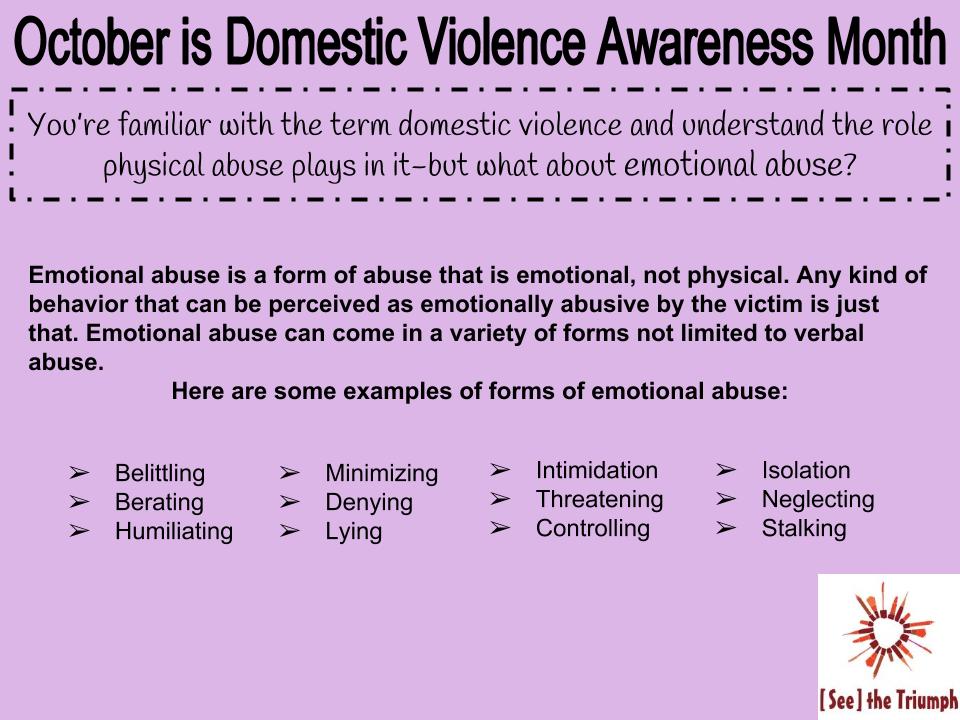
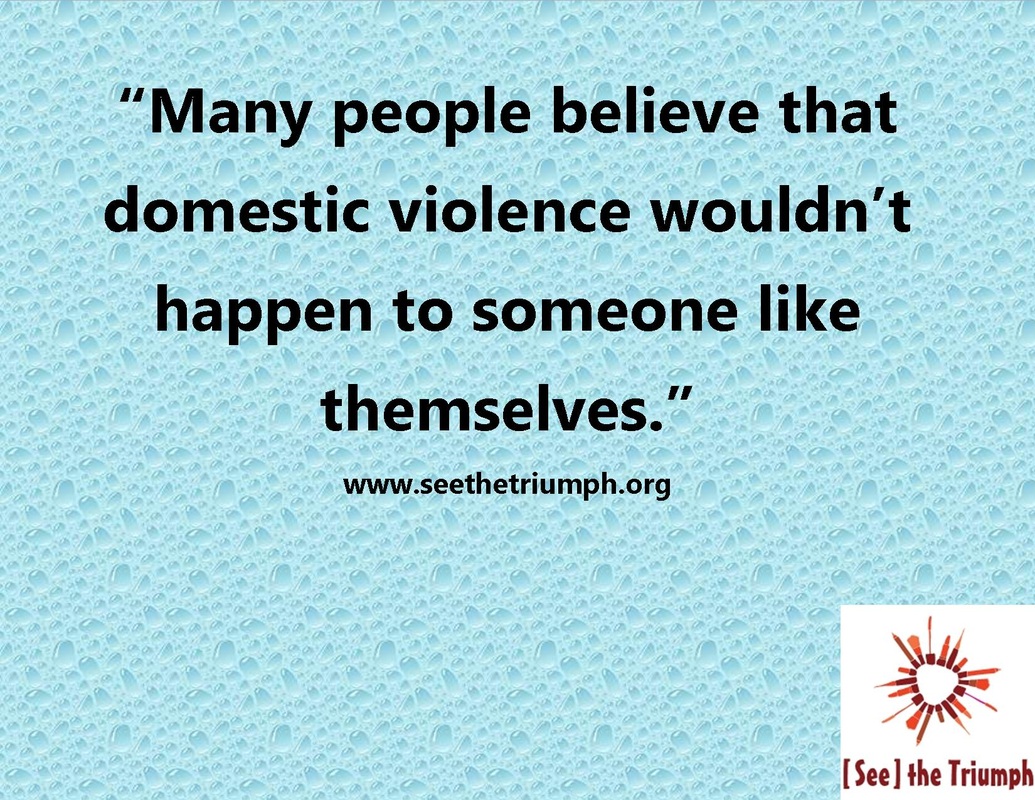
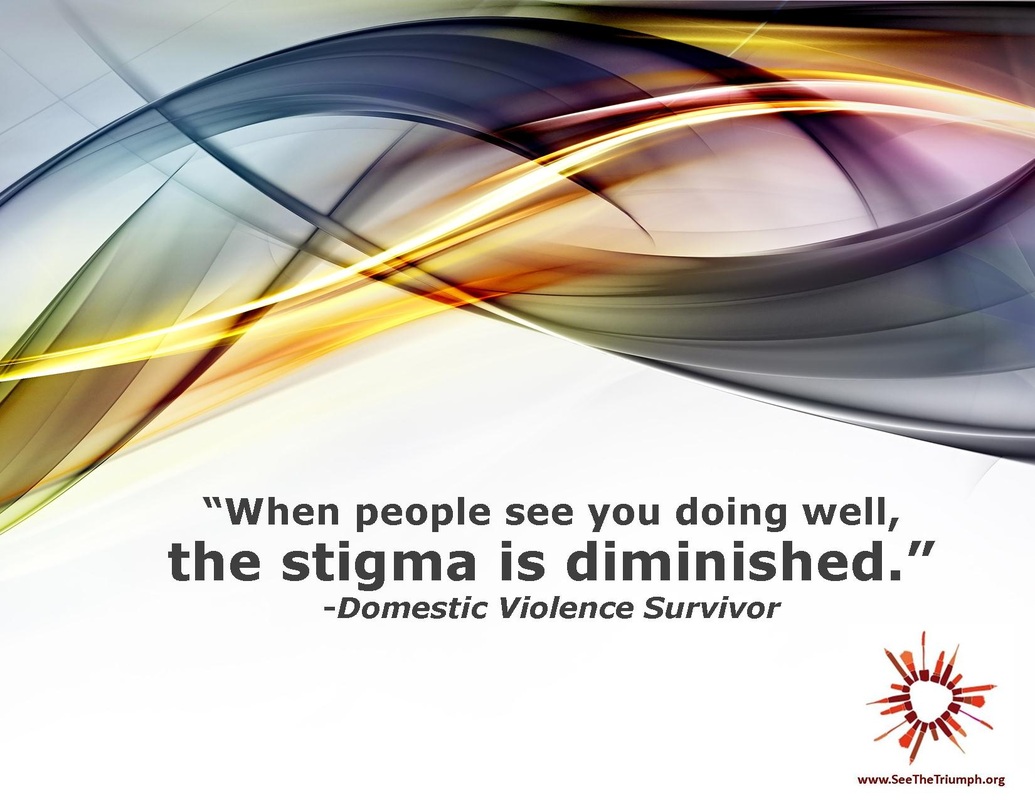
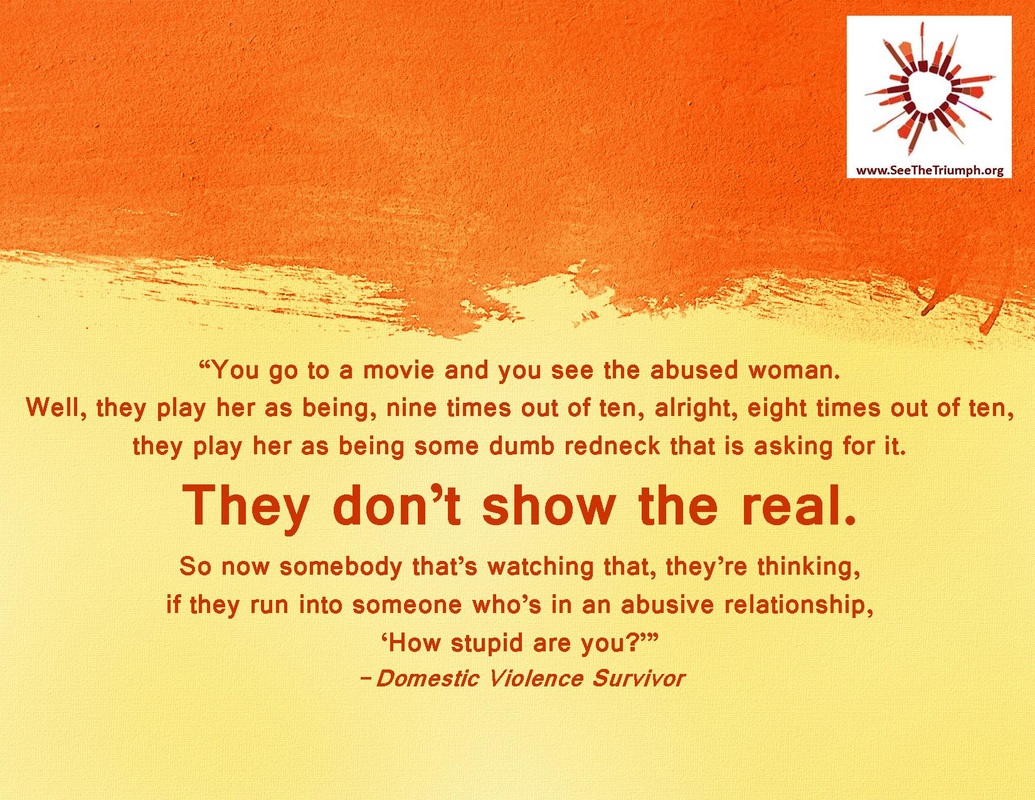

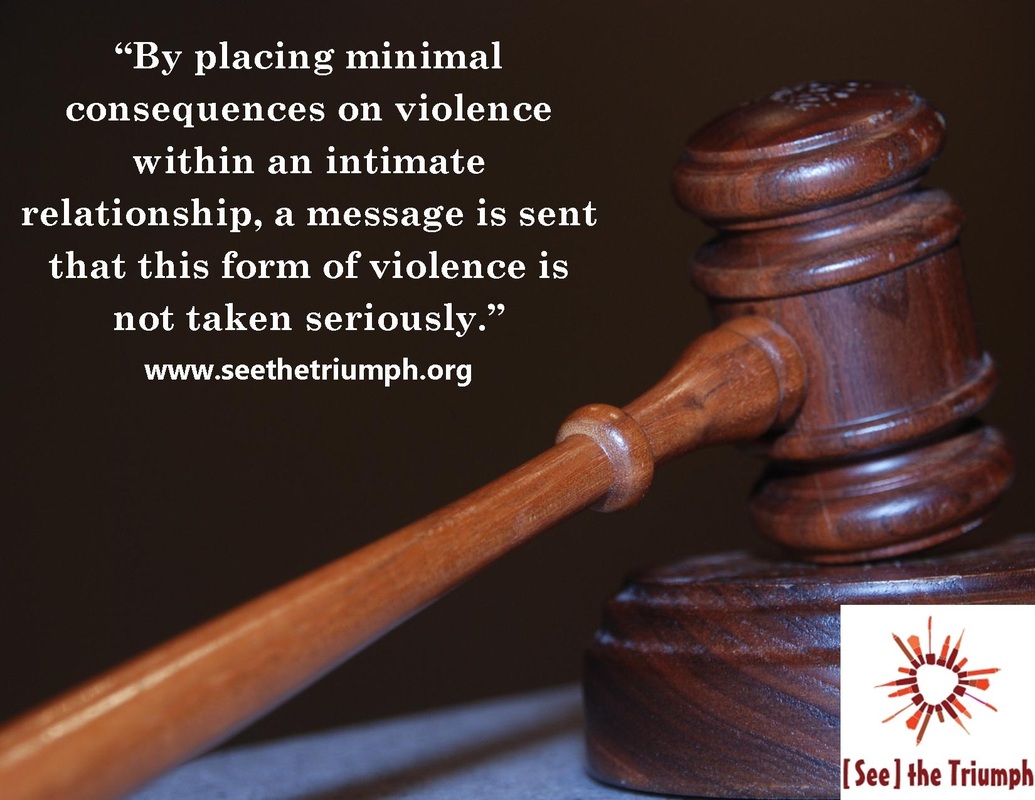
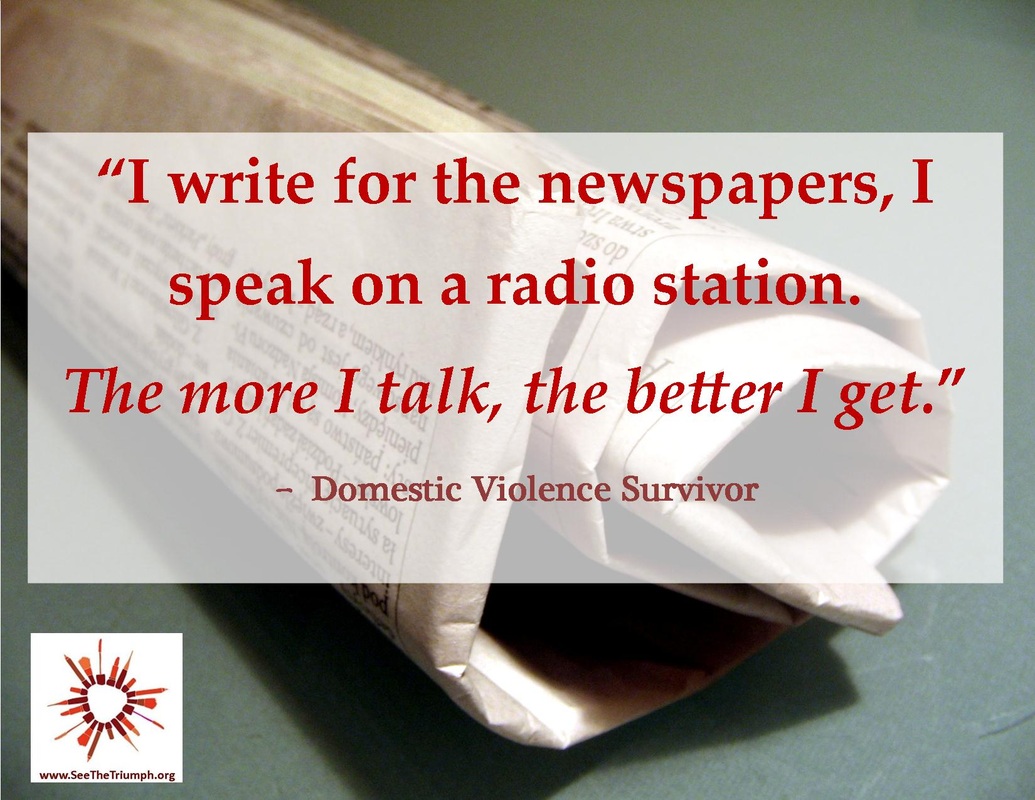
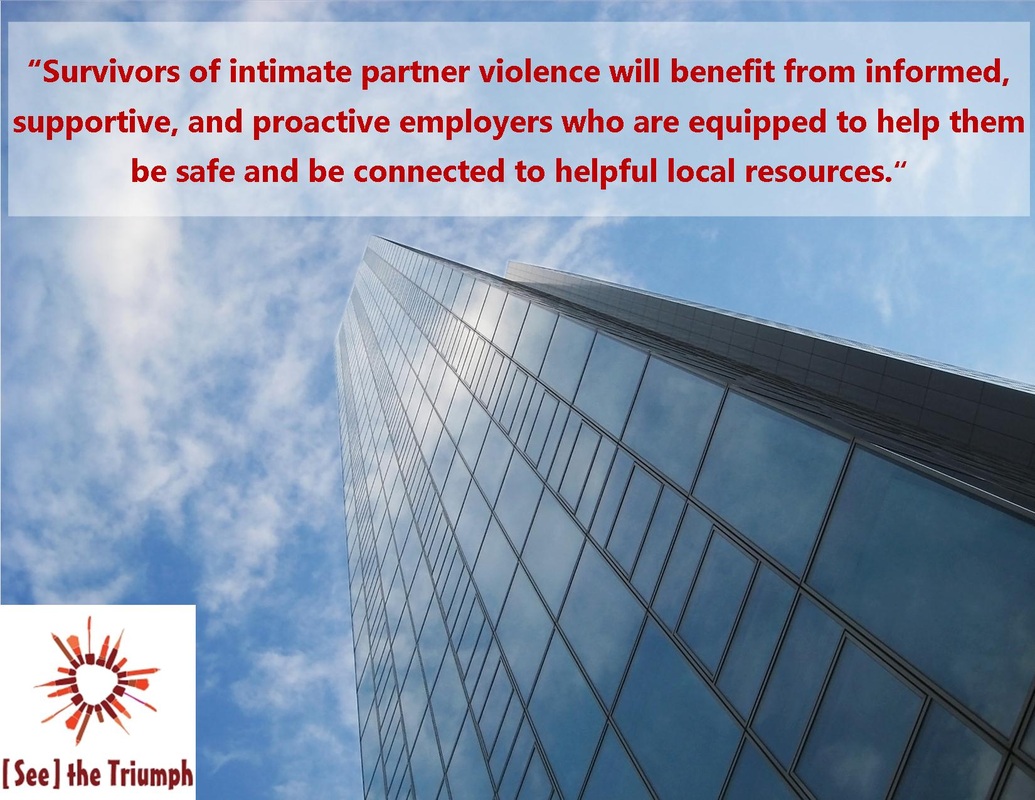
 RSS Feed
RSS Feed